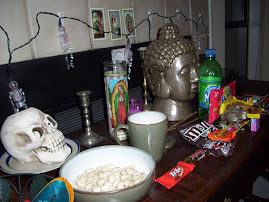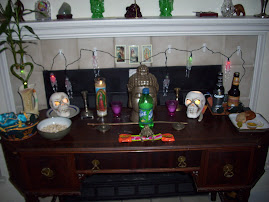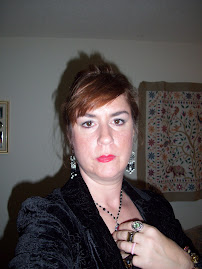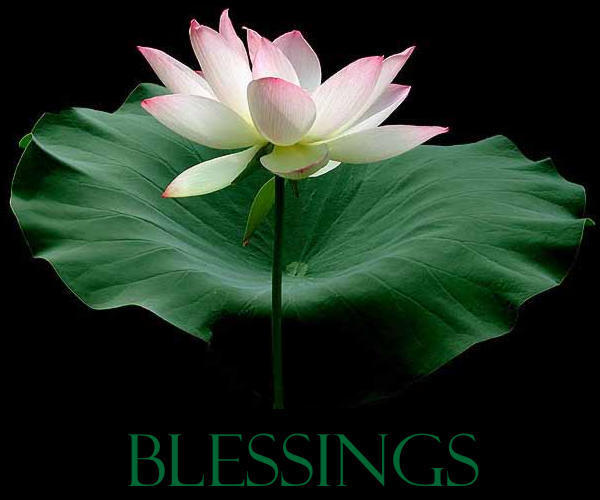Of all the Irish folktales of Henry Glassie, I felt that "The Man Who Had No Story," best captured the essence of fairytales I grew up reading. It embodied the fantasy and lack of time and space. In a moment of time, which in our western minds amounted to one night, Brian O' Braonachain became a jack of all trades and a master story teller. Times were tough back in the day, for "those were bad times--the English were in power and they wouldn't let the Irish earn a single penny in any way." Brian didn't know what else to do but venture into the "forbidden" fairy glen to cut rods to make his baskets. He didn't know that in one evening his life would forever be transformed by being transported to two houses to receive "training" in the trade of story telling. He was terribly frightened of being eveloped by the fog that surrounded him until he saw the light of a house, and thought, "where there is light there must be people." I feel the fog is a metaphor for the confusion the Irish must have felt during this suppressive time. The light of the house represents the light of wisdom coming from his learning experience, to guide him out of the darkness of the unknown. Of course, the unknown was the experience Brian needed to change the course of his life. He was given the confidence to access wisdom from within to do anything from being a a doctor to a priest. He emerged from his journey in the the morning to the exact place he started with "his head on the two bundles of rods," which he would ever cut again. The journey was the result of fairy magic, which represents divine intervention to allow life to change and transform.
The "King of Ireland's Son" was an interesting happily ever after the gore fairy tale. It was loaded with typical fairy tale elements, such as giants at every stopping point, and a little green leprechan man, who was essentially in control of the whole show. The typical children's fairy tale of our time does not elude to violence like this tale does. The little leprechan intimidates and scares the giants by telling them that he will be beheaded by his master who is an enormous giant himself. It's funny to me how the king of Ireland's son, who is not named or called a prince proper, wants to travel afar to the east to marry a blood thirsty woman. Its not about love and happily ever after necessarily, but rather contest and conquest, and adventure.
The "Birth of Finn MacCumhall" was somewhat of an epic of pain and suffering and tragedy that ends up in victory. This tale includes alot of gore and mayheim and seems relentlessly barbaric to me. This is the price to pay for triumph in the end, for Finn ends up with the King's reverence and respect and inherits the Dunn.
Significant, in all these tales, is events themselves alude to the passing of time, rather than increments of time, such as minute, hour, days, and years. Night to Dawn seems to be the most used reference point, in terms of when the events occur. Supper time is also another reference point, instead of evening. Time is rather vague, for phrases such as "a long time ago", "in those days," do not denote exact passages of time. It isn't obvious either when exactly the tales are set. Some are written in the 1900's, others in the 1800's. It seems the tales could go back to Biblical times, like B.C., or perhaps the 1400's. They appear to be as old as the days, and could date back to the beginning of Ireland, I suppose. In the tale of "The Man Who Had No Story", there are almost maybe two evenings worth of events in one night's slumber, or perhaps longer, because Brian went to the Fairy Glen at lunch, which could have been noon or early afternoon. I think time is vague perhaps because it is not so much the time as it is the journey. Hard to fathom, considering how we are such slaves to time clocks, due dates, appointments, and when things are "supposed" to happen. I think Europe in general is more laid back about time.
Monday, October 27, 2008
Subscribe to:
Post Comments (Atom)











3 comments:
Hi Laura! Really insightful point you make with, "I think time is vague perhaps because it is not so much the time as it is the journey. Hard to fathom, considering how we are such slaves to time clocks, due dates, appointments, and when things are "supposed" to happen. I think Europe in general is more laid back about time."
I agree, we are obsessed with living-by-the-clock in general as a culture here and my European and Australian family n' friends used to tease me about that until recently when I moved to a very laidback area and stopped wearing a watch four years ago.
It's a whole different frame of reference. And the emphasis is on the journey...the processing, the taking of time to do things right and fully, the experience itself not rushed through but allowed to move forward at its own pace.
We have good friends who just last weekend in a big, violent rainstorm here completely lost their fall crop and they farm 1,000+ acres so it's a fairly big family operation. Tha patriarch sitting across from me at the dinner table last night said, "well...it is what it is" and I thought, how Irish-sounding. The acceptance of a hardship without bitterness and his looking at the big picture of how they did well with their summer crop and so will be alright in the end and next year's another year...
Best, Lachlan
Pick an expedite that you can trust and are OK with. Request faultless references and attempt and measure their genuineness and reliability. Your degree of experience is significant right now.
play bazaar
satta king
play bajar
You need to ensure your blog remains solid. You ought to do support from time to time to guarantee your blog is anything but difficult to explore and that everything is working appropriately. You can likewise refresh your design as your site advances. This will guarantee that your blog capacities appropriately and keep your guests from getting exhausted with your webpage.
play bazaar
satta king
satta result
Post a Comment